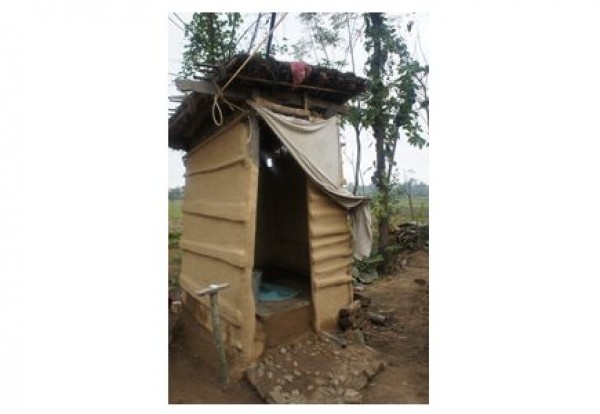The Global Sanitation Fund signs seven new sub-grantees in Nepal

The Global Sanitation Fund (GSF) programme in Nepal awarded eleven grants to seven sub-grantees in total USD 524,954, to kick start the implementation of its programme. GSF’s work in Nepal, aims to impact a total of 1.9 million people, 1.1 million of which currently do not have access to basic sanitation and hygiene. The sub-grantees who were awarded funds are local and national organizations in Nepal, which will focus on the districts of Bajura and Bardiya districts, located in the Far and Mid-Western Development Region of Nepal. The GSF programme in Nepal, aims to achieve total sanitation coverage in its five target districts, namely: Bajura, Bardiya, Arghakhanchi, Sindhupalchock and Sunsari. Launched in October 2010, the programme is implemented UN-Habitat and its sub-grantees, through using demand creation approaches, such as Community-Led Total Sanitation (CLTS) and strengthening sanitation supply chains, through sanitation marketing approaches. The Environment, Culture, Agriculture, Research and Development Society, Nepal (ECARDS-Nepal) and Samjhauta were each awarded USD 15,000 to help strengthen the capacity of Local Government officials working at the District, Village Development Committee (VDC), and Municipality, levels, as well as civil society members working for non-governmental organization (NGO), to promote sanitation and hygiene. This will be achieved through a range of activities including, delivering CLTS Training of Trainers (ToT) across Bajura and Bardiya - over an eight-month period. To help achieve Open Defecation Free (ODF) status across the targeted VDCs and encourage communities to adopt sound hygienic practices, SEBAC and IDS Nepal were selected and awarded USD 130,000 each. The grants will enable the organisations to coordinate and undertaken sanitation campaigns, involving a wider range of demand creation and supply stimulation activities, to promote behaviour change in relation to sanitation and hygiene in Bajura and Bardiya over the course of the next 15 months. In the same way, Gulariya Municipality and IDS has been awarded a small grant to under a sanitation campaign in Gulariya and Tikapur Municipalities respectively. In order to support the sector’s increased efforts to coordinate implementation and monitoring activities, SEBAC and ECards- Nepal have also been selected, through the award of a small grant of in the region of USD 16,000 each, to step up efforts to develop the capacity of stakeholder sector coordination and planning at the district level. Finally, NRCS and RSN were awarded in the region of USD 70,000 each to deliver training and orientation on total sanitation and behavioural change – from school teachers, to communities leaders and other influential local stakeholders in Bajura and Bardiya respectively. In the same way, Samjhauta has been given a small grant of USD 9,000 to work in both Gulariya and Tikapur Municipalities. “The GSF is very excited that the initial sub-grantees have been identified and agreements are now in place. This will enable activities to accelerate on the ground in the initial two focus Districts during early 2012. In addition, sub-grantees are currently being identified in the other GSF focus Districts, and UN- Habitat is confident to have them in place in the first quarter of 2012. The GSF hopes that this will enable the programme to reach 120 Village Development Committee during the second year of the programme.” Source: WSSCC





